Following the tariff reduction itinerary, Vietnamese footwear exports will enjoy zero tariff once the ASEAN Economic Community (AEC) is established in late 2015, allowing producers to expand their export markets and promote cooperation to access new materials.
General Secretary of the Vietnam Leather, Footwear and Handbag Association (LEFASO) Phan Thi Thanh Xuan said that ASEAN represents a substantial footwear market for Vietnam, as the region spent more than 1.8 billion dollars on footwear imports last year. The establishment of the AEC in 2015 will offer Vietnam a host of advantages.
Vietnam has an abundant, qualified and low-cost workforce, giving it an edge over Thailand, Indonesia and Malaysia which are the countries that have a developed leather and footwear sector. Therefore, Vietnam will have a better chance to expand to markets within AEC and cooperate with AEC member states to develop new materials that help reduce the reliance on imports and increase the added value of the end products.
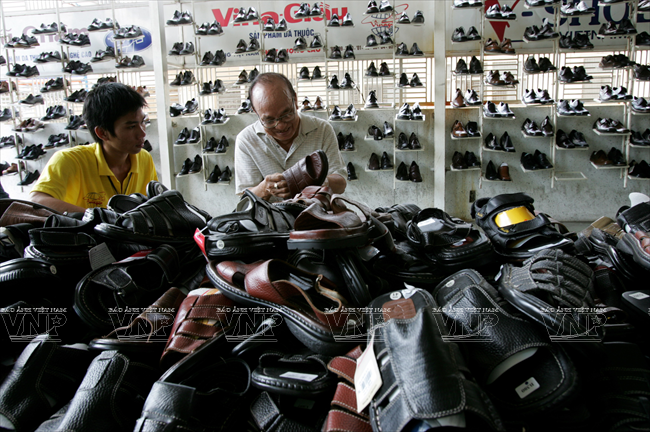 Durable and beautiful products of VINA Giay Corporation are the favourites
Durable and beautiful products of VINA Giay Corporation are the favourites
of both domestic and foreign customers. Photo: Trong Chinh/VNP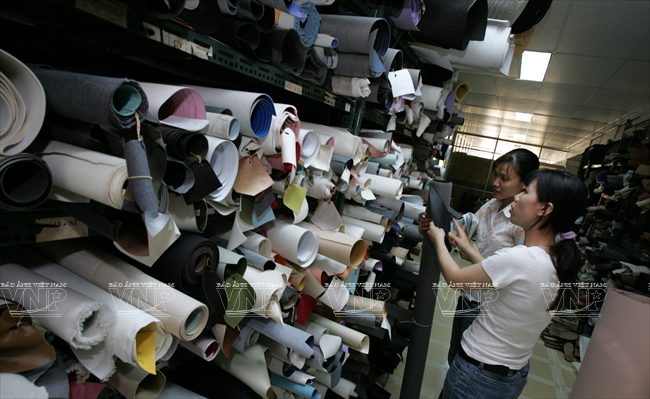 Vietnam strives to diversify the material resources. Photo: Trong Chinh/VNP
Vietnam strives to diversify the material resources. Photo: Trong Chinh/VNP
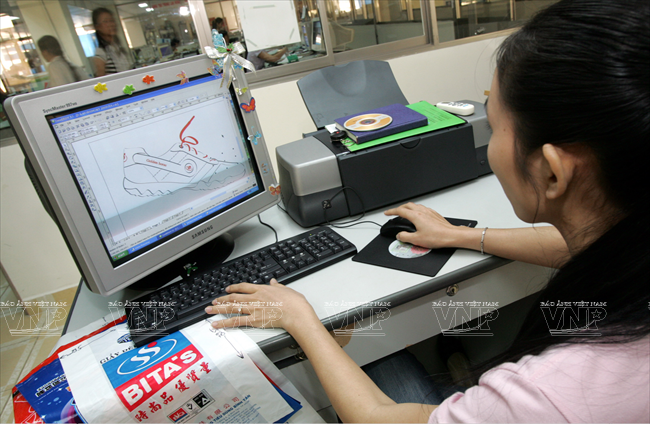 Footwear sector promotes the mordernisation of technology in designing and production. Photo: Trong Chinh/VNP
Footwear sector promotes the mordernisation of technology in designing and production. Photo: Trong Chinh/VNP
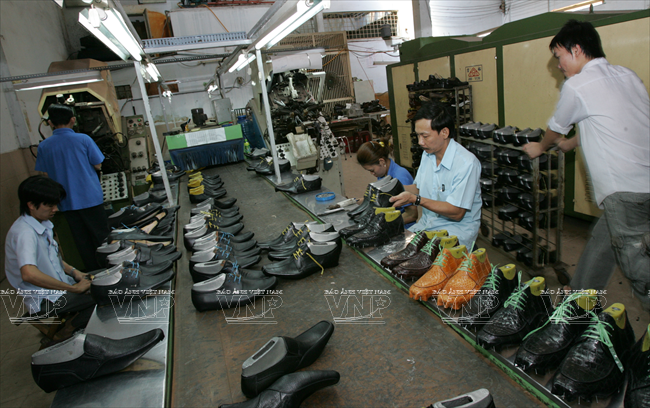 In comparison with other countries, Vietnam has an advantage of skilful and cheap workerforce. Photo: Trong Chinh/VNP
In comparison with other countries, Vietnam has an advantage of skilful and cheap workerforce. Photo: Trong Chinh/VNP
 Processing footwear for export of Bita’s. Photo: Trong Chinh/VNP
Processing footwear for export of Bita’s. Photo: Trong Chinh/VNP
Phan Thi Thanh Xuan added that the countries are also expected to provide a steady supply of footwear and gain a solid foothold in major markets such as the United States, the European Union and Japan. However, competition will intensify once zero tariffs are applied and this trend was inevitable.
At the moment, almost all AEC countries have set up technical barriers to protect their domestic products. Therefore, footwear exporters and foreign direct investment (FDI) businesses in Vietnam currently do not face many hindrances in terms of technical standards. However, domestic businesses are unlikely to meet quality requirements.
To strengthen the sector, Minister of Industry and Trade Vu Huy Hoang called upon the Vietnam Textile and Garment Association and LEFASO to devise plans to support the industries.
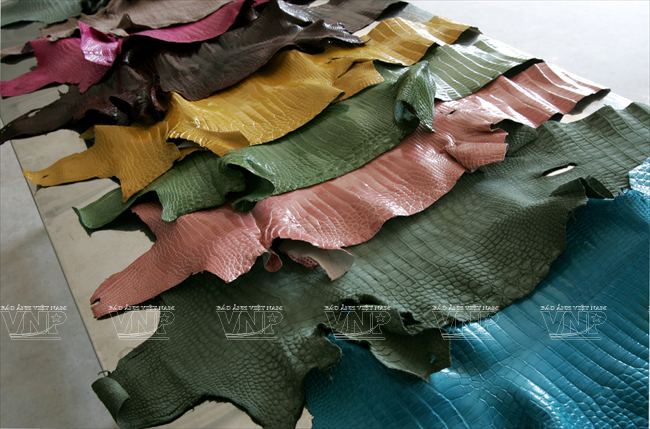 Crocodile skin of Ton Phat Crocodile Co., Ltd, one of the high-class materials,
Crocodile skin of Ton Phat Crocodile Co., Ltd, one of the high-class materials,
is treated by Italian advanced technology. Photo: Trong Chinh/VNP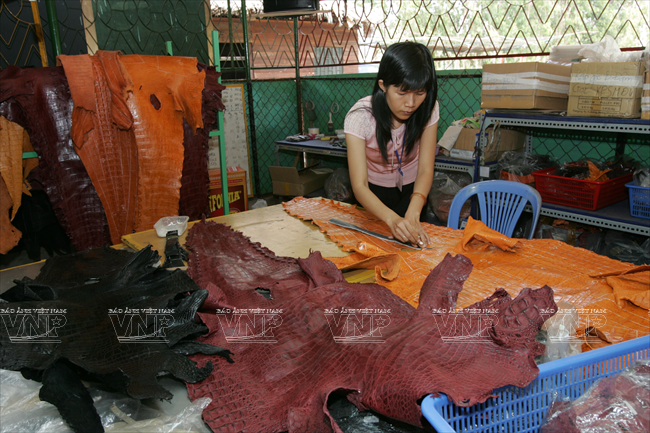 Workshop of High-class products made from crocodile skin of Hoa Ca Crocodile Co., Ltd. Photo: Trong Chinh/VNP
Workshop of High-class products made from crocodile skin of Hoa Ca Crocodile Co., Ltd. Photo: Trong Chinh/VNP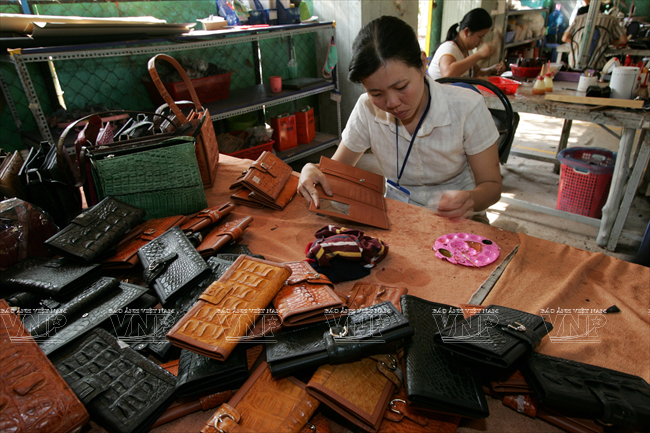 High-class products made from crocodile skin of Hoa Ca Crocodile Co., Ltd. Photo: Trong Chinh/VNP
High-class products made from crocodile skin of Hoa Ca Crocodile Co., Ltd. Photo: Trong Chinh/VNP
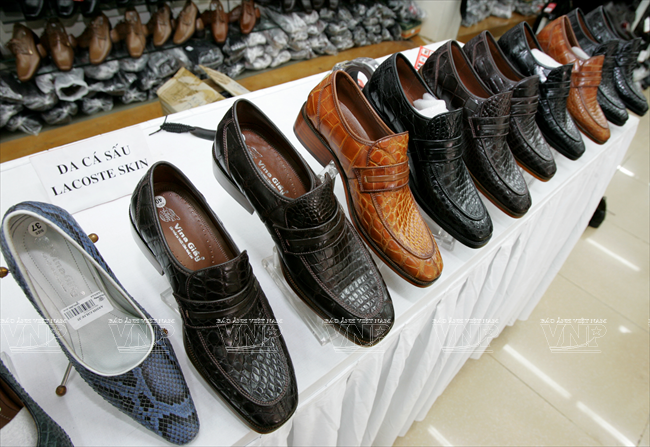 High-class shoes made from crocodile skin. Photo: Trong Chinh/VNP
High-class shoes made from crocodile skin. Photo: Trong Chinh/VNP
According to industry insiders, domestic firms should reinvent themselves by improving the quality of their products and building and popularising their trademarks. They also need to carve a niche in the domestic market to create a firm foundation for expanding to foreign markets.
They are also advised to prepare for the implementation of international agreements on issues of intellectual property, consumer protection, small and medium-sized enterprises, workforce quality and funding.
The relevant bodies will update the business community on the opportunities and challenges ahead once they are fully integrated into the AEC.
By VNA/VNP